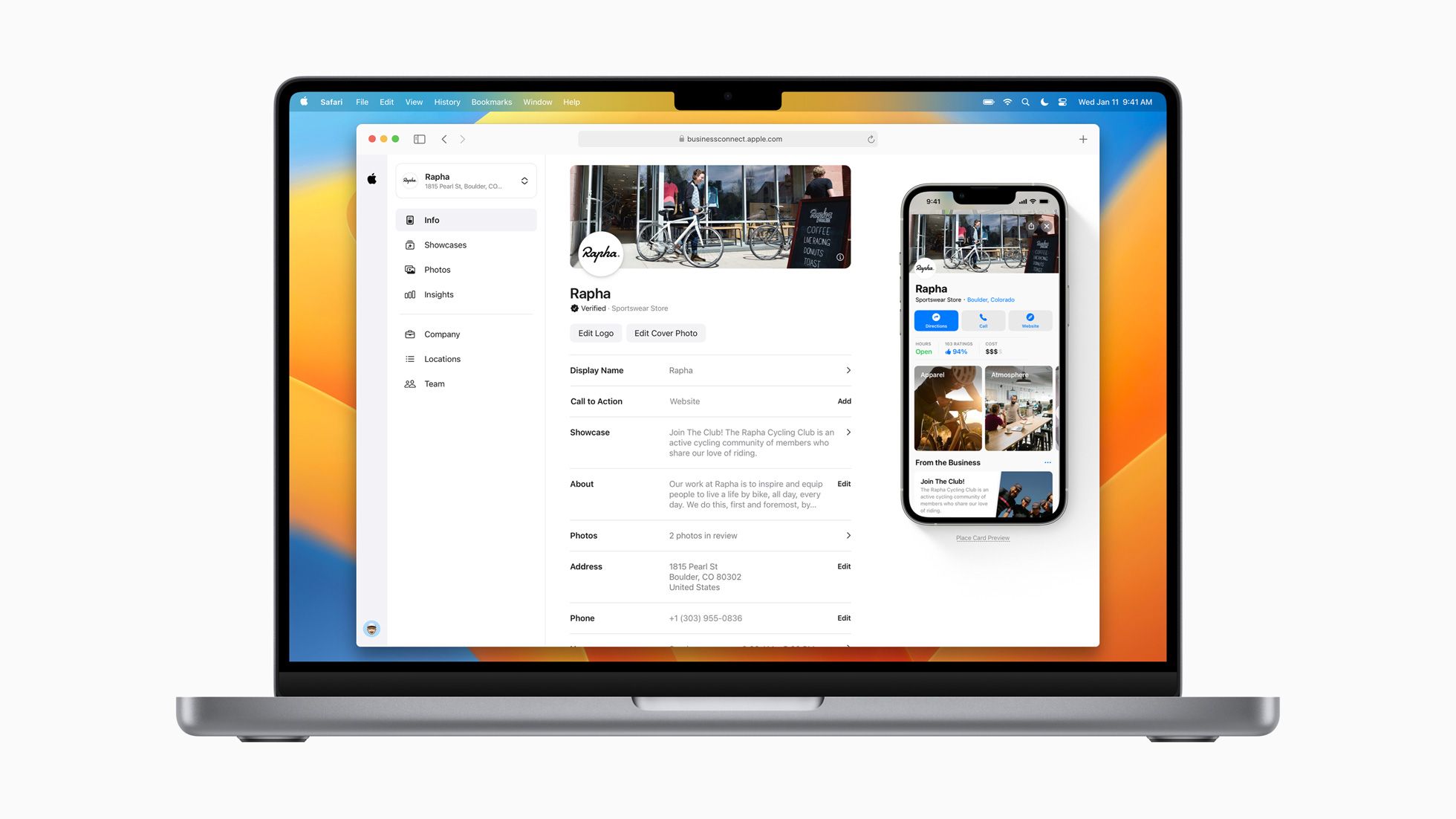New Apple Business Connect Features & Implications
Join David Mihm, Mike Blumenthal & Greg Sterling as they discuss why the Apple Business Center is significant for SMB and enterprise marketing. Both a video and full, edited transcript are available.

What is new in Apple Business Connect?
Mike: Apple Business Connect rolled out yesterday as both a new small business interface as well as an API (Documentation). The small business interface is quite elegant, easy to use, simple and dramatically expanded. Apple positions it as a way for small businesses to achieve the same presence across their iPhone and mobile platforms as large enterprises.
